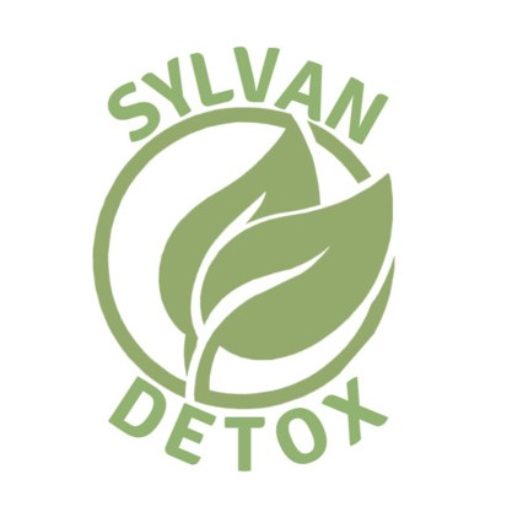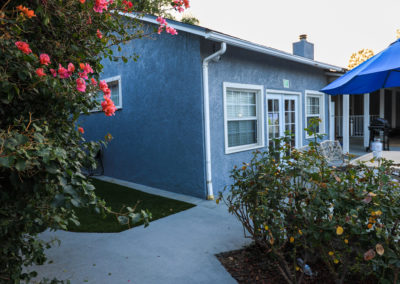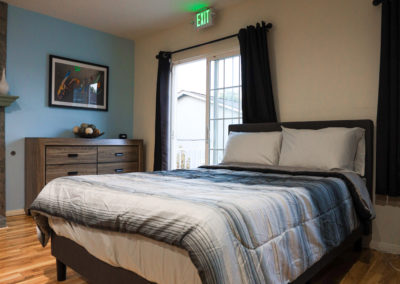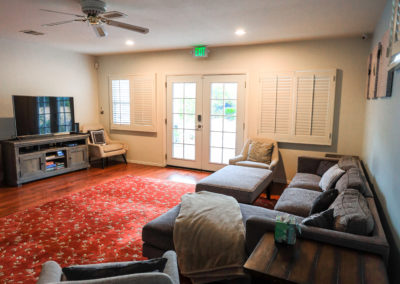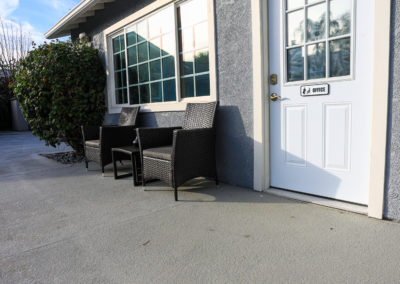Rehab Near | Me Sylvan Detox: Best Detox & Rehab Center for CA
Searching for a rehab near me in California? Sylvan Detox can help you end your dependence on drugs and alcohol for good. Our clients come from all over California. As a leading substance abuse rehab, we offer evidence-based therapies and holistic treatments designed to target every aspect of a person’s addiction. With our support, you can learn how to manage your alcohol or drug addiction and achieve the lasting recovery you crave.
Table of Contents
- Why Choose Sylvan Detox
- Highest Rated California Alcohol Detox Program
- California Drug Detox Program
- Top Alcohol Rehab
- Drug Rehab
- How Much Does Rehab Cost in California
- How Long Is Detox?
- How Long Is Rehab?
- 30 Day Short Term Rehab
- Long Term Rehab (60-90 Days)
- Additional Treatments and Addiction Treatments Available
- Does My Insurance Have Coverage for Rehab?
- MAT
- Cognitive Behavioral Therapy
- Dialectical Behavioral Therapy
- Rational Emotive Behavioral Therapy (REBT)
- Dual Diagnosis Treatment
- EDMR
- Relapse Prevention
- Life Skills Training
- Vocational Training
- Group Therapy
- Experiential Therapy
- One-on-One Therapy
- Family Therapy
- Trauma-Informed Therapy
- Physical Fitness
- Off-site Activities
- 12-Step Rehab in California
- Anxiety Disorder
- Bipolar Disorder
- Borderline Personality Disorder
- Codependency
- Depression
- Impulse Control Disorder
- Post-Traumatic Stress Disorder
- Whty Choose Sylvan Detox?
Why Choose Sylvan Detox
At Sylvan Detox, we feature luxury treatment programs designed to help clients end their dependence on drugs and alcohol. Located in Woodland Hills, California, Sylvan Detox offers traditional and holistic rehab therapies based on medically sanctioned treatments and promising alternative therapies like creative therapy and music therapy. We can tailor our treatments to suit each client’s unique needs, ensuring that they get the support they need to move forward to a life of healing and sobriety.
Highest Rated California Alcohol Detox Program
At Sylvan’s detox center, clients addicted to alcohol can take their first big step toward recovery. Although not every client requires detox, many do. Our detox programs are administered by our doctors and nurse practitioners who provide 24-hour monitoring of each client. Withdrawal symptoms may be mild, but they can quickly develop into severe symptoms like delirium tremens that involve hallucinations and tremors. Our goal is to treat withdrawal symptoms before they can trigger health emergencies and to ensure that clients can relax as comfortably as possible. After completing their detox program, clients can progress to alcohol rehab for treatments designed to target their psychological and behavioral dependencies on alcohol.
California Drug Detox Program
Sylvan attracts clients from all over the state, including Laguna Hills, CA; San Rafael, CA; and Los Angeles, California. We feature medically supervised detox that targets the physical dependence associated with drug addiction. Our detox facility is safe and staffed by certified doctors and nurse practitioners. We monitor each individual’s progression through the detox process, ensuring they’re as comfortable as possible. We also provide medical treatment for withdrawal symptoms that arise.
Top Alcohol Rehab
Sylvan Detox is among the top alcohol rehab centers in the state. We individualize our treatments to provide the tailored support that clients need to end their dependence on alcohol. Our inpatient alcohol rehab program includes medically sanctioned therapies and holistic treatments. Clients can expect to take part in one on one treatment sessions and in group therapies. During treatments, therapists help clients understand their triggers and how to control them. By enrolling in our alcohol treatment program, clients can develop the skills they need to manage their sobriety.
Drug Rehab
Unlike many other California drug rehab centers, Sylvan puts a strong focus on individualized treatment. We offer a wide range of addiction treatments to ensure that each client gets the ideal therapy for their unique needs. At our drug rehab center, clients will meet daily with their therapist for one on one treatment as well as participate in various group therapies. Our clinicians and therapies help clients learn to manage their triggers so they can prevent relapse from occurring. After completing our inpatient treatment program, many clients enroll at our partner drug rehabs for intensive outpatient therapy or other outpatient programs.
How Much Does Rehab Cost in California
As you might expect, the cost of rehab varies depending on which center in California you choose–and whether or not you enroll in residential treatment or outpatient treatment. A rehabilitation center in Woodland Hills, California may have different costs than an addiction recovery center in Malibu, California. Costs are generally based on levels of care and amenities. At Sylvan, we offer individualized treatment programs. It’s best to contact our drug and alcohol rehab center to discuss costs based on the treatment plan recommended for you. The length of time a person spends receiving formal addiction treatment also affects the cost of their rehab stay.
How Long Is Detox?
The medical detox process may feel lengthy when someone is experiencing withdrawal symptoms, but the process can usually be completed in about a week. That’s not true for everyone, though. Someone who hasn’t been dependent on a drug or alcohol for very long may progress through detox more quickly. Some individuals require longer to complete their detox journey. At Sylvan Detox, we’re able to accommodate each client’s unique recovery journey at our high-quality detox facility. We offer treatments designed to relieve unpleasant withdrawal symptoms so that clients can get the rest they need while their bodies are carefully weaned of the addictive substance.
How Long Is Rehab?
Because each person is different and has different addiction treatment needs, the rehab time frame can vary by person. Many people complete Sylvan’s treatment programs in 30 days. Many of the state’s substance addiction rehabilitation facilities feature 30-day programs. However, one month isn’t always long enough for a client to gain the stability needed to return to their everyday life and manage their addiction. That’s why many rehabs like Sylvan offer 60-90 day treatment programs as well.
30 Day Short Term Rehab
Most addiction specialists suggest that 30 days is the minimum time a person needs in treatment to effectively manage their addiction. Studies have shown that the longer someone spends in an addiction treatment facility, the less likely they are to suffer a relapse. Some people base their decision to leave after 30 days on insurance coverage. Others simply feel ready to return to their lives. For clients who may not be ready to leave treatment, Sylvan features long-term recovery programs as well. It’s quite common for clients who have a dual diagnosis or who have been addicted to alcohol or drugs for a long period of time to require more support and a longer stay in rehab.
Long Term Rehab (60-90 Days)
Sylvan features long-term addiction recovery programs for clients who need additional time in treatment. Long-term treatment provides clients with a robust foundation for rebuilding their lives. After a long-term inpatient stay, clients often transition to our partner rehab centers for continuing care in an intensive outpatient program or sober living facility. Sylvan is an inpatient drug rehab but many of our partners in Los Angeles, California, or elsewhere in the state offer supportive outpatient programs for clients who can benefit from long-term treatment.
Additional Treatments and Addiction Treatments Available
Sylvan Detox attracts clients from many areas of California with our wide range of substance abuse treatment approaches. Our clients come from many different areas, including Napa Valley, West Valley, Newport Beach, and San Diego, California. Sylvan’s California rehab center features medically sanctioned treatments such as cognitive behavioral therapy and cooccurring disorders treatment. We also offer holistic and alternative therapies such as family therapy and nutrition education. With our focus on longterm recovery, Sylvan combines the best drug and alcohol treatments in one addiction treatment center staffed by caring and talented addiction medicine specialists.
Does My Insurance Have Coverage for Rehab?
The insurance accepted from one California rehab to another varies as does the amount of coverage each carrier provides. Sylvan Detox accepts a wide range of insurance plans, but again, the amount will vary in accordance with each individual’s medical insurance plan. The best thing to do is contact Sylvan to discuss your medical insurance with one of our insurance specialists. We can help you determine your coverage. Fortunately, nearly all insurance plans cover substance abuse treatment at some level.
MAT
Medicationassisted treatment MAT helps many people achieve recovery from drug and alcohol addiction. Medically assisted treatment relies on the use of medications as part of a person’s substance abuse treatment plan. MAT is ideal for clients struggling to overcome an opioid addiction or alcohol addiction. Medications such as Suboxone can ease the intense cravings that a person addicted to heroin often experiences. It can also block withdrawal symptoms. The addiction specialists at Sylvan are able to start clients on MAT at any point during their treatment plan if they need it.
Cognitive Behavioral Therapy
Cognitive-behavioral therapy (CBT) is an important drug and alcohol addiction treatment. During CBT treatments at Sylvan, clients work one on one with a therapist to explore the connections between their thoughts, feelings, and behaviors. By identifying unhealthy thoughts and feelings, they can begin to understand what triggers them to drink or use drugs. The next step in the treatment process is to design strategies for effectively coping with their triggers before they can lead to relapse.
Dialectical Behavioral Therapy
Dialectical behavior therapy (DBT) is closely related to CBT and is another behavioral health therapy offered at Sylvan. During DBT sessions at our rehab facility, clients will work with their therapist to practice distress tolerance. By improving the way they manage their negative emotions, clients can more easily ward off relapse and manage their triggers successfully. Leading recovery centers frequently feature both CBT and DBT as part of their drug and alcohol rehab programs.
Rational Emotive Behavioral Therapy (REBT)
Many clients who suffer from substance use disorders experience thoughts, beliefs, and emotions that underscore their alcohol and drug dependence problems. During rational emotive behavioral therapy, clients are asked to challenge their unhealthy beliefs and thoughts in order to prevent the unhealthy behaviors that often arise from them. Closely related to CBT, REBT also encourages distress tolerance and response management techniques.
Dual Diagnosis Treatment
Many rehab centers in California offer dual diagnosis treatment. About one-third of people addicted to alcohol and drugs also have a mental health disorder such as depression, anxiety, or post-traumatic stress disorder. A coocurring disorder involves an addiction to alcohol or a drug as well as a mental health condition. These conditions are distinct from one another but they can impact one another with very negative consequences. That’s why it’s best for someone with dual diagnosis to obtain simultaneous treatments that target both conditions at the same time. Sylvan’s treatment programs can accommodate clients who have a cooccurring disorder.
EMDR
Eye movement desensitization and reprocessing is a therapy that encourages a brief focus on trauma as a way to move where its memory is stored in the brain. Many people who have a substance use disorder have experienced traumatic events in their past. They may even have been diagnosed with post-traumatic stress disorder. The goal of EMDR sessions is to help clients to resolve unprocessed traumatic memories and spur healing. By processing these memories, clients may no longer experience the fight or flight response that often accompanies traumatic thoughts.
Relapse Prevention
Some clients are more vulnerable to relapse than others. This is common. People recover at different rates and require different types of support in order to maintain their recovery journey. During relapse prevention treatment sessions, therapists focus on strategies for preventing relapse. Clients also learn how to spot the different stages of relapse. By stopping relapse at the emotional phase, they’re less likely to actually use alcohol or drugs, which is the physical and final stage of relapse.
Life Skills Training
Some clients can benefit from life skills training that helps them to communicate more effectively. Improving life skills can enhance the recovery process. Sylvan features life skills training in group therapy sessions; however, it’s not uncommon for clients to work individually with therapists if they are struggling with particular life skills. Mastering interpersonal skills is an important life skill that can foster healthy relationships. During life skills training, clients will also address other life skills such as maintaining a financial budget, finding work, eating healthy, performing daily exercise, and more. Living a healthy lifestyle helps clients to maintain their recovery journey.
Vocational Training
Some clients who attend rehab need more than simply help overcoming their drug or alcohol addiction. They can also benefit from vocational training. Obtaining gainful employment is empowering. Work provides structure, which is important for recovering individuals who are rebuilding their post-addiction lives. During treatment, clients can expect to set various goals for themselves. The ideal career for them will help them to achieve those goals as well as to help them maintain their long-term recovery.
Group Therapy
Group therapy is a popular treatment modality at Sylvan as well as most addiction treatment centers around the country. During group therapy sessions, clients participate in therapist-led discussions of topics that are relevant to the group in general. Clients are able to share their experiences and thoughts while supporting one another in a safe setting. Topics can vary widely but include things like anger management, trigger management, strength building, social skills, and more.
Experiential Therapy
Positive experiences can enhance the recovery process. Experiential therapy focuses on therapeutic activities that can have a benefit to the individual. Some people struggle with conventional forms of addiction treatment. Experiential therapy moves the treatment paradigm to an entirely different setting like the beach or a campground. Therapists develop experiences for clients that help them raise their level of awareness, helping them to confront unhealthy negative thoughts and participate in behaviors that support lasting recovery.
One-on-One Therapy
One-on-one therapy is a cornerstone of addiction treatment at Sylvan. Clients typically meet daily with therapists to work on their individual goals and focus on issues that are pertinent to their circumstances. Clients who attend Sylvan’s rehab center often come from different walks of life, bringing different experiences with them. It’s important that each person has the opportunity to focus on their unique situation in order to manage their addiction in the context of their lives. Therapists help clients understand their unique triggers and then, together, they develop the strategies needed to manage them successfully.
Family Therapy
Many of Sylvan’s clients have families that have been significantly affected by addiction. During family therapy sessions, therapists help each affected family member to work through their issues in an attempt to better support their loved one in recovery and to try to rebuild their relationship. Each family is unique and often has unique issues. At Sylvan Detox, our therapists are able to individualize sessions to provide the support that each family needs to begin its healing process. Generally, family therapy helps members to improve the way they communicate with each other and to stop engaging in enabling and codependent behaviors.
Trauma-Informed Therapy
Trauma-informed therapy is often helpful for clients who have been diagnosed with post-traumatic stress disorder or have been in recovery from the disorder. Many people who become addicted to alcohol and drugs have experienced trauma or several traumatic events in their past. Therapists help clients by taking these traumatic events into consideration. They help clients develop strategies for dealing with the feelings and thoughts that those past traumas can cause. Improving trigger management can lead to successful addiction management.
Physical Fitness
Physical fitness is part of Sylvan’s holistic therapy offerings. Substance use disorders take a physical and mental toll on a person. A focus on fitness can promote the healing of both physical and mental health. During fitness periods, the body releases endorphins that target aching muscles as well as the brain itself. This is why runners sometimes report feeling a “runner’s high.” The endorphin release brings about a natural high that is healthful, unlike a drug-induced high, which is not.
Working out and embracing a fit lifestyle can also help people in recovery fill their time with something healthful to do. Many people addicted to alcohol or drugs spent a substantial part of each day using or recovering from using drugs and alcohol. Once they stop using, they need to fill that time with something worthwhile; physical fitness activities like walking, jogging, or swimming can replace those unhealthy habits.
Off-Site Activities
While the bulk of addiction treatment at Sylvan takes place at our detox center or rehab, off-site activities, especially for those who are nearing the completion of their treatment programs, can enhance the recovery process. Our treatment center provides opportunities for groups to experience activities like seeing a movie or hiking. These activities provide clients with a balance between treatment and some relaxing downtime. Clients have the opportunity to bond with other clients who are also forging their road to lasting recovery.
12-Step Rehab in California
At Sylvan, we feature 12step program facilitation, helping clients become aware of the 12 principles that govern programs like Alcoholics Anonymous and Narcotics Anonymous. Learning about the 12 step principles is part of aftercare planning. Many clients require ongoing support that groups like AA and NA can provide. There are 12 step groups throughout the state in places like Long Beach, California; Woodland Hills, CA; and San Juan Capistrano, California. Some people prefer to attend 12 step programs for a short period of time while others remain active on an ongoing basis in order to help others as they maintain their own recovery journey.
Anxiety Disorder
Clients who suffer from an anxiety disorder can find it difficult to manage their worries. While there are many types of anxiety disorders, they can all impact a person’s drinking or drug abuse problem. A person with an anxiety disorder and substance addiction requires treatment for each cooccurring disorder in order to effectively manage both conditions. Anxiety can be debilitating. Doctors may prescribe both medication and therapy to help clients manage their anxiety. When their mental disorder is managed, dual diagnosis clients find it easier to focus on their addiction treatments.
Bipolar Disorder
Bipolar disorder, once termed manic depression, is a mood disorder characterized by high-energy manic periods and very low, depressive periods. Treatment for bipolar disorder often includes both therapy and medication. Some people with this disorder previously sought out drugs or alcohol during either phase of their mood disorder, but the abuse of such substances can pave a path to addiction, leaving the individual vulnerable to the development of a dual diagnosis. During treatment for cooccurring disorders, therapists will help clients to successfully manage both of their conditions.
Borderline Personality Disorder
Impulsive behavior, mood swings, and unstable relationships are hallmarks of borderline personality disorder. If you are diagnosed with borderline personality disorder and alcohol or drug addiction, you will need dual diagnosis treatment. In addition to the addictions we treat, Sylvan can also provide treatment for clients who have a dual diagnosis. It’s important for people to manage both of their conditions so that the one doesn’t negatively impact the management of the other.
Codependency
Codependent relationships are not uncommon among people with addictions. Codependency involves one needy individual and another who needs to be needed. The dynamic has a way of fostering substance abuse as well as other enabling and unhealthy behaviors. During therapy, therapists can work with clients in codependent relationships or struggling to manage their codependent tendencies. Codependency is often a subject that is discussed at length in family therapy and couples therapy.
Depression
Depression affects millions of people nationwide. One out of every five people can expect to experience a major depressive episode in their lives. It’s not uncommon for someone who has an addiction to alcohol or drugs to also suffer from depression. In fact, abusing drugs and alcohol can change the brain’s chemistry, which can result in the development of conditions such as depression or anxiety. It’s also common for some people to turn to drugs or alcohol in order to alleviate their unpleasant depression symptoms. We can treat depression at our treatment facility as part of a client’s dual diagnosis treatment plan. Therapy and, at times, medication will help clients manage their dual diagnosis successfully.
Impulse Control Disorder
A person may be diagnosed with impulse control disorder if they are unable to control their impulses, which can lead to various forms of conduct disorder. Alcohol and drug addiction are governed by an inability to control the compulsion to use. Sometimes impulse control disorder and substance abuse disorders overlap. With behavioral therapy and, sometimes, even medication management, impulse disorder, like addiction, can be managed.
Post-Traumatic Stress Disorder
Post-traumatic stress disorder is a mental health disorder that involves persistent mental and emotional stress that stems from past traumatic experiences. The individual may have experienced something traumatic themselves or witnessed a traumatic event or series of events such as the abuse of a parent. It isn’t uncommon for individuals who suffer from PTSD to turn to drugs or alcohol in order to get some relief from their symptoms, which can be debilitating. With dual diagnosis treatment, clients at Sylvan can get the PTSD treatments and substance abuse treatments they need to manage both of their conditions.
